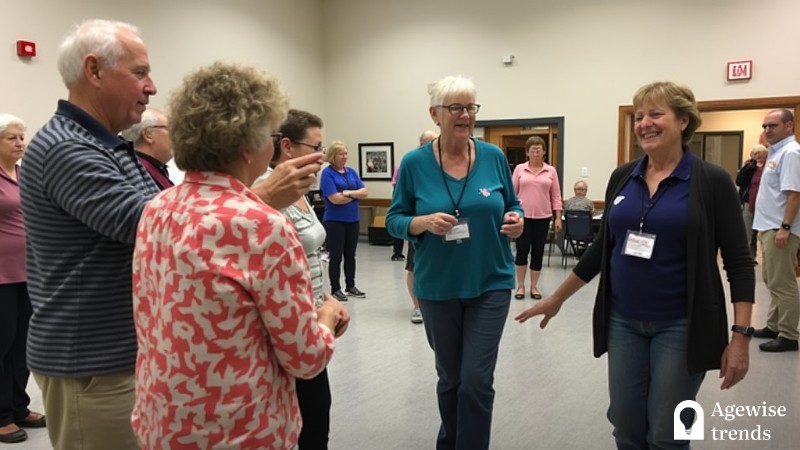As life expectancy rises thanks to medical improvements, persons in their 70s and beyond encounter new health issues. Understanding and addressing these difficulties can have a substantial impact on quality of life and well-being. This thorough reference combines critical health information with practical recommendations for preserving good health in your golden years.
Understanding the aging process
Numerous bodily changes occur as people age, affecting their overall health. These include decreased muscle mass, decreased bone density, and skin elasticity alterations. Aging has an impact on a variety of body systems, including the cardiovascular, respiratory, and musculoskeletal systems. Recognizing these changes assists in tailoring health practices to the needs of an older body.
Top health concerns for seniors
Arthritis: The most common condition among seniors, affecting over half of all persons over the age of 65. It can cause chronic pain and impede movement, therefore regular physical activity is necessary. Working with a healthcare physician to create a personalized exercise plan can help you manage your symptoms and stay mobile.
Heart disease: The main cause of death among seniors, affecting both old men and women. High blood pressure and cholesterol levels are both risk factors. Maintaining a healthy weight with a balanced diet, frequent exercise, and adequate rest can lower your risk of heart disease.
Cancer: The second leading cause of mortality among people over the age of 65, and it is generally treatable if detected early. Regular screenings, including mammograms, colonoscopies, and skin exams, are critical for early detection and treatment.
Chronic Respiratory Diseases: COPD, asthma, bronchitis, and emphysema are frequent among the elderly and can leave them more vulnerable to infections. These disorders can be managed with lung function testing, suitable drugs, and, if necessary, oxygen therapy.
Alzheimer’s disease: Affects one in every nine people above 65, influencing cognitive function, safety, and self-care. Early diagnosis and access to treatment alternatives, such as drugs and clinical trials, can boost quality of life.
Osteoporosis: A condition that causes weakening bones and an increased risk of fractures. It is particularly common in senior women. Medication, a calcium and vitamin D-rich diet, and weight-bearing activities are all part of the treatment plan.
Diabetes: This affects 25% of people over the age of 65 and can be treated with frequent blood sugar readings and lifestyle changes. Controlling blood sugar levels requires a well-balanced diet and regular exercise.
Influenza and pneumonia: Seniors are more vulnerable to these infections. Annual flu shots and the pneumonia vaccine are strongly advised to avoid these potentially dangerous diseases.
Shingles: When the chickenpox virus reactivates, it can produce intense pain and a rash. Approximately one in every three persons over the age of 60 may develop shingles, and the shingles vaccine can greatly reduce this risk.
Depression: This can weaken the immune system and make aging people more susceptible to infection. Medication, therapy, and increased physical activity are all possible treatment choices.
The function of physical activity and nutrition
Regular exercise is essential for elders to maintain their health and independence. Walking, weight training, and balance exercises can help improve cardiovascular health, muscle strength, and stability, lowering the chance of falling. A well-balanced diet that includes fruits, vegetables, whole grains, and lean proteins promotes general health and can help manage chronic illnesses.
Mental health and cognitive function
Mental health is essential for general well-being. Puzzles and reading are examples of cognitively stimulating hobbies that can help sustain cognitive abilities. Building strong social relationships benefits mental health by reducing loneliness and giving emotional support.
Preventive care and regular check-ups
Routine health screenings and medical check-ups are essential for the early detection and treatment of health issues. Seniors should schedule regular screenings for heart disease, cancer, diabetes, and other diseases. Preventive treatment, which includes immunizations and lifestyle changes, is critical for preserving good health and avoiding serious consequences.
Seniors can improve their quality of life and meet the particular problems of aging by recognizing some important health facts and taking proactive measures. Regular medical care, a healthy lifestyle, and mental well-being are essential for achieving peak health in later life.














